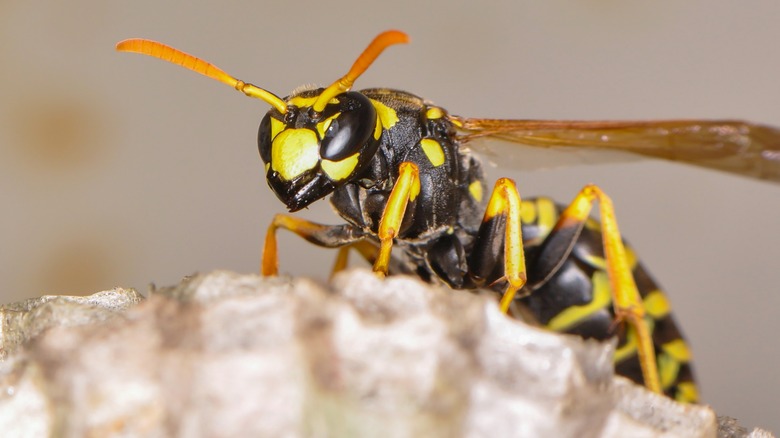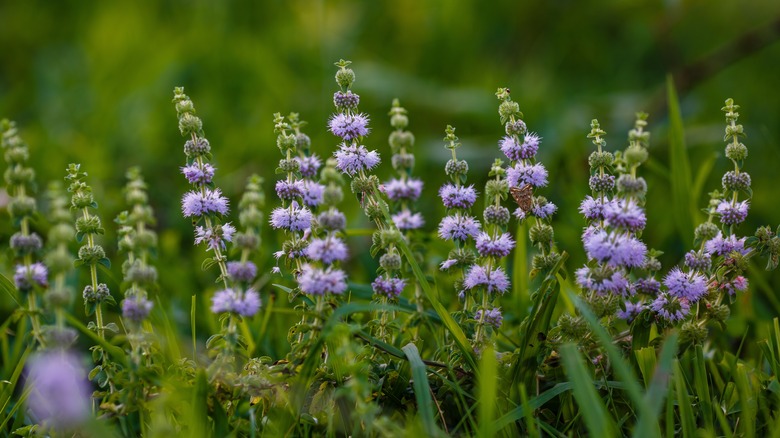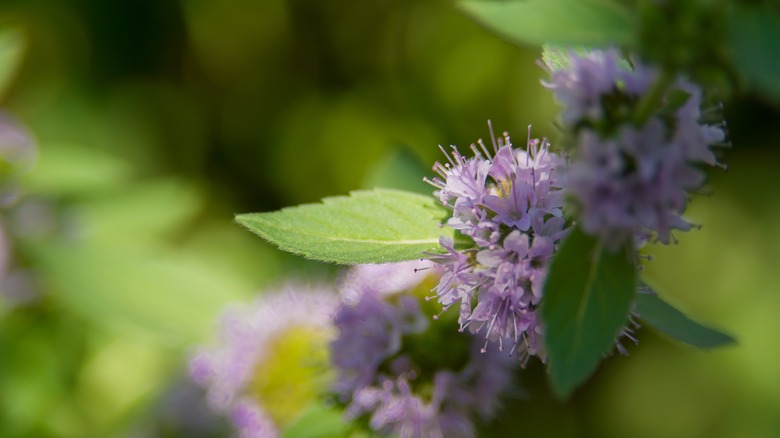Grow This Strong-Smelling Plant To Help Repel Wasps From Your Yard For Good
As important as wasps are for the environment, they can also be a real pain, literally! Sharing your yard with aggressive wasps is unpleasant, and it can be just plain dangerous for those who are allergic. You don't have to stop going outside. Instead, consider filling your yard with plants that repel wasps. One of the best choices is the strong-smelling herb pennyroyal, which has long been used to deter wasps and other insects.
Wasps, like ants and bees, belong to the order Hymenoptera. While many wasps (like parasitoid wasps, which help keep gardens free from pests) do not sting, many other species have extremely unpleasant stings. Hornets (Vespa spp.), yellowjackets (Vespula spp.), and paper wasps (Polistes spp.) are some of the most common culprits, with yellow jackets responsible for the most stings. They are especially prone to aggression in late summer and have been responsible for ruining more than a few picnics as they are drawn to food and sugary drinks. All three of these wasps are social and build nests, so if you encounter large numbers of hornets or other wasps in your yard, check for possible nests. If you find a hornet nest around your lawn, either carefully spray and remove it yourself or hire a professional to remove it. Don't forget to wear protective gear.
Growing pennyroyal
Both European pennyroyal (Mentha pulegium) and American pennyroyal (Hedeoma pulegioide) have long attracted attention for their strong menthol scents and possible medical uses. Unfortunately, doctors have found that both plants are toxic to the liver, so using pennyroyal internally is strongly discouraged. So take extra precautions if you grow these plants and have young children or curious pets. Just because pennyroyal shouldn't be ingested doesn't mean it doesn't have uses, though, and it is beloved for its ability to deter many types of pests, including wasps.
Members of the mint (Lamiaceae) family, both types of pennyroyal are easy to care for plants that thrive in sunny locations and tolerate rocky soil well. American pennyroyal generally prefers slightly drier soil than its European counterpart, which flourishes in more moist conditions. European pennyroyal is hardy in USDA zones 6 through 9, while American pennyroyal is generally hardy in zones 5 through 9.
Using pennyroyal to repel wasps
American and European pennyroyal can spread aggressively, so they are best grown in containers, or they may take over your garden like many kinds of mint plants. Creating a wasp-repelling container garden on your patio or other heavily used outdoor space is the perfect way to deter wasps from visiting your picnic while adding beauty to your yard. In addition to pennyroyal, a container garden of plants that could keep wasps away for good might include classic flowers and herbs like marigolds and basil. Even famously easy-to-grow peppermint is known to repel wasps.
If simply growing containers of pennyroyal and other wasp-repelling plants aren't keeping wasps away, consider crushing a few leaves on your pennyroyal plants so they release their essential oils. A Society of Chemical Industry study found pennyroyal essential oil was highly effective in repelling paper wasps and yellowjackets. Pennyroyal doesn't just deter unwanted insects; it also attracts beneficial insects. Pennyroyal's flowers have been found to attract helpful syrphid flies.


